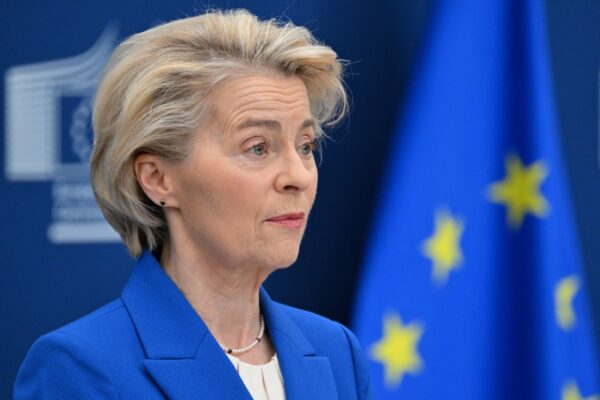
EU Leadership Crisis Looms as Von der Leyen Faces Parliament Over Vaccine Deal Secrecy
European Commission President Ursula von der Leyen is facing a dramatic — though largely symbolic — no-confidence vote in the European Parliament this Thursday, as backlash intensifies over her handling of the EU’s largest COVID-19 vaccine deal, dubbed “Pfizergate.” The motion, triggered by far-right Romanian lawmaker Gheorghe Piperea, focuses on a €35 billion contract for 1.8 billion Pfizer vaccine doses that von der Leyen reportedly negotiated directly with the company’s CEO, Albert Bourla, via text messages — communications the Commission later claimed were unarchived and “short-lived.” This is the first no-confidence vote against a Commission President since 2014, and although it is almost certain to fail — requiring a two-thirds majority in a 720-member chamber — it has reignited deep concerns about transparency, executive overreach, and the growing influence of nationalist parties in EU politics. ‘Biggest COVID Contract’ Shrouded in Secrecy The European Court of Auditors has called the Pfizer deal “the biggest Covid-19 vaccine contract signed by the Commission.” Critics say the negotiation bypassed institutional norms, lacked proper oversight, and resulted in inflated prices — €19.50 per dose compared to previous €15.50 contracts — costing taxpayers billions. While von der Leyen defends her actions as crisis management, European courts and watchdogs disagree. In May 2025, the EU’s General Court ruled that text messages related to public business must be preserved, calling the Commission’s refusal to release them a “violation of transparency laws.” Investigations into potential corruption, destruction of evidence, and abuse of office are still underway at the European Public Prosecutor’s Office. Parliament Divided — But Von der Leyen Remains Shielded Von der Leyen appeared before the Parliament on Monday with her full team of commissioners, calling the no-confidence motion “an extremist playbook move” and defending her direct contacts with vaccine manufacturers. She was backed by Manfred Weber, leader of her own European People’s Party (EPP), who accused far-right MPs of acting in Russia’s interest, stating: “Putin will like what his friends are doing here.” Still, the motion has exposed tensions among traditional allies. Center-left Social Democrats, liberal Renew Europe, and even some EPP members have criticized von der Leyen’s autocratic tendencies, but fear that removing her could hand a victory to anti-EU forces. “We will not give a single vote to those who want to destroy the European Union,” said Social Democratic leader Iratxe García, warning von der Leyen not to align too closely with the far right. The EPP has faced criticism for joining nationalists in rolling back climate regulations and blocking transparency measures. Political Spectacle, But Real Risks The vote is not secret, forcing every MEP to publicly state their position — raising the stakes for parties that may oppose von der Leyen’s style but want to avoid appearing aligned with Eurosceptics. The controversy could not come at a worse time for the Commission President, who is in the middle of sensitive trade negotiations with the United States. A potential U.S. tariff hike looms, and von der Leyen’s team is scrambling to finalize a deal by the July 9 deadline, recently extended by Washington. A Presidency Under Scrutiny Von der Leyen has led the Commission since 2019, navigating the pandemic, the war in Ukraine, and managing the EU’s largest post-crisis recovery fund. Yet her tenure has been marred by a pattern of opacity. As Germany’s defense minister, she was investigated for mismanagement and destruction of communication records — a troubling echo of the current scandal. The Pfizergate saga, with billions in unused vaccines reportedly languishing in EU warehouses, has become a symbol of unchecked executive power, wasteful spending, and democratic erosion at the heart of Brussels. While the no-confidence vote is unlikely to unseat her, it has already become a powerful political reckoning — one that could shape the future of EU leadership, transparency reforms, and citizen trust in the European project.

